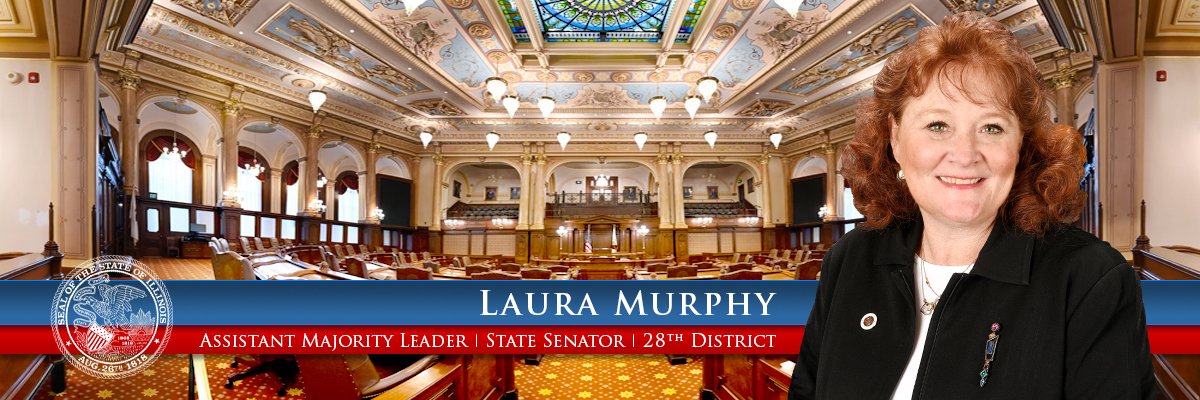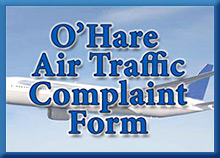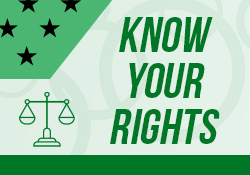- Details
 DES PLAINES – State Senator Laura Murphy is teaming up with Versiti and the Des Plaines Park District to host a blood drive Tuesday, Feb. 28.
DES PLAINES – State Senator Laura Murphy is teaming up with Versiti and the Des Plaines Park District to host a blood drive Tuesday, Feb. 28.
“Blood transfusions are required for many life-saving operations and procedures,” said Murphy (D—Des Plaines). “When there is a short supply of blood—life-saving operations can be at risk of being performed safely—leaving many people without the immediate medical attention they need. I hope this drive will bolster our local blood supply to make sure those who need medical care can get treatment as quickly as possible.”
The event will run from noon to 4 p.m. at the Prairie Lake Community Center at 515 E. Thacker St. in Des Plaines.
In 2022 the Red Cross announced they were experiencing the worst blood shortage in over a decade. Hospitals across the country were only receiving one-quarter of the blood products they requested, severely limiting the amount and type of procedures doctors would be able to perform.
Individuals interested in donating are encouraged to sign up at https://bit.ly/BloodDrive-2-28-23.
- Details
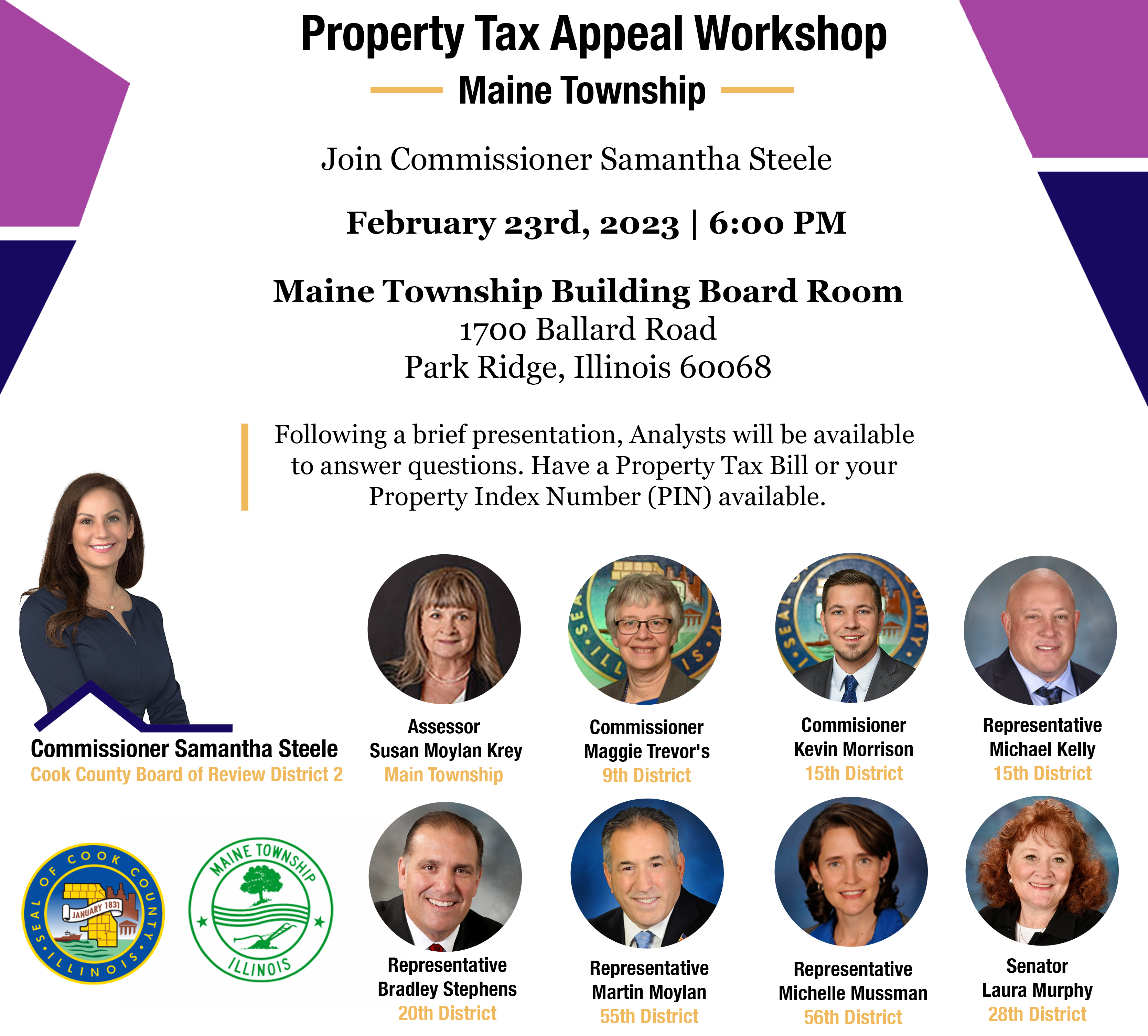 DES PLAINES – Residents of Maine Township have the opportunity to learn how to appeal their property taxes at an upcoming Tax Appeal Seminar sponsored by State Senator Laura Murphy.
DES PLAINES – Residents of Maine Township have the opportunity to learn how to appeal their property taxes at an upcoming Tax Appeal Seminar sponsored by State Senator Laura Murphy.
“Property taxes can be confusing for many—especially the appeals process” said Murphy (D—Des Plaines). “I am happy to sponsor this event to make sure Maine Township residents have access to resources they need to get their property tax appeal concerns in order.”
Cook County Board of Review Commissioner Samantha Steele will lead the seminar, which will be held on Thursday, Feb. 23 at 6 p.m. at the Maine Township Building Board Room at 1700 Ballard Rd. in Park Ridge.
Analysts will be available to answer questions after a brief presentation. Interested residents will need to bring either their second installment property tax bill or property tax index number.
For more information, contact Murphy’s office at 847-718-1110.
- Details
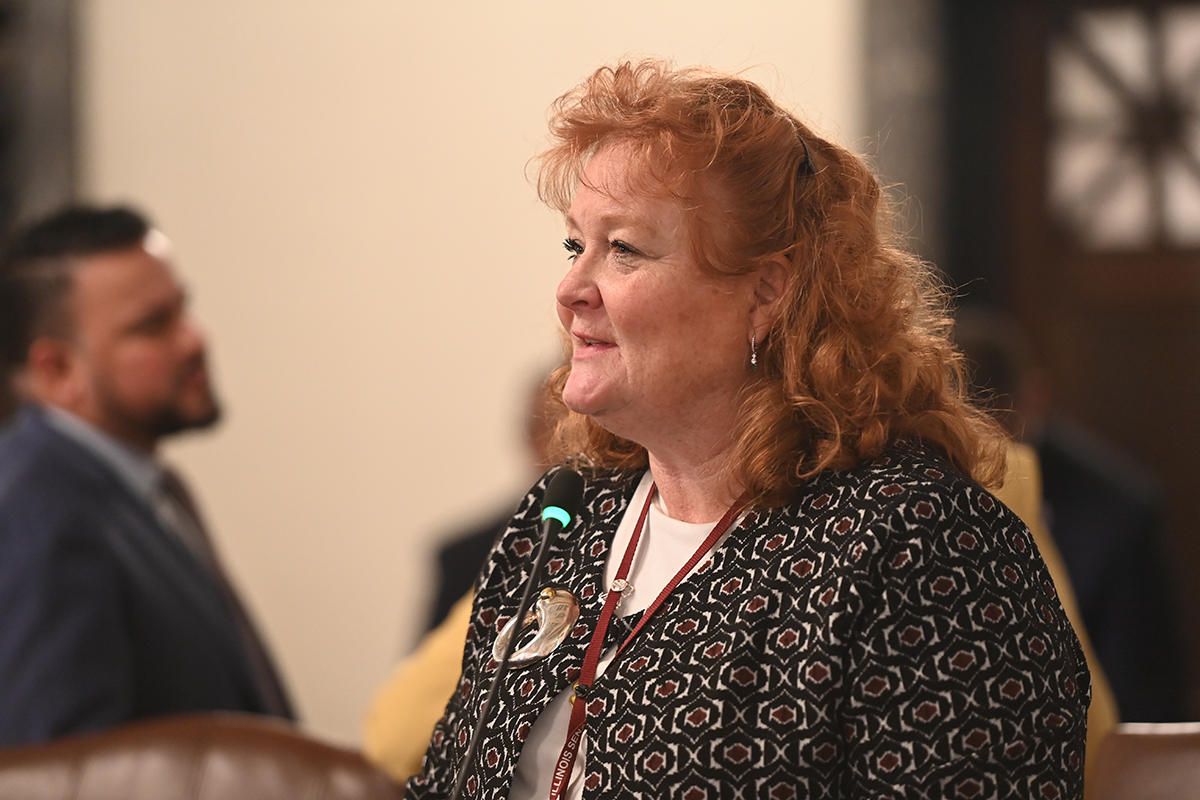
“I am honored to take on the role of Assistant Majority Leader,” said Murphy (D-Des Plaines). “It’s a privilege to be entrusted to represent my colleagues in this capacity, and I look forward to working with them to advance legislation that brings positive change to our great state.”
Murphy is one of four assistant leaders in the Senate Democratic Caucus who assist the Senate President to develop and implement an agenda for the majority party.
In addition to her duties as Assistant Majority Leader, Murphy serves as the chair of the Executive Appointments Committee, and sits on eight other Senate committees: appropriations, assignments, executive, higher education, labor, local government, public health, and transportation.
“It is my hope that through this opportunity I can continue to serve as a leader in making Illinois a better place for all,” said Murphy. “It is only through unity that we can ensure the Illinois government is serving the people of this great state.”
- Details
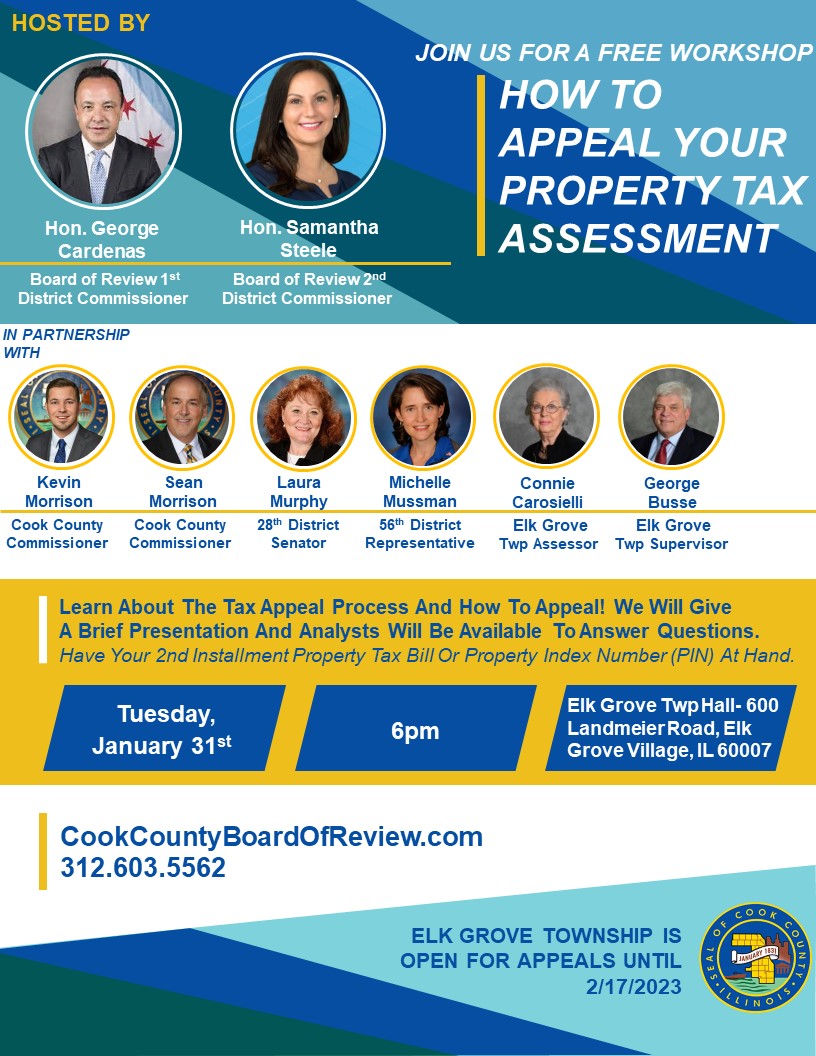 DES PLAINES – Residents of Elk Grove Township have the opportunity to learn how to appeal their property taxes at an upcoming Tax Appeal Seminar sponsored by State Senator Laura Murphy.
DES PLAINES – Residents of Elk Grove Township have the opportunity to learn how to appeal their property taxes at an upcoming Tax Appeal Seminar sponsored by State Senator Laura Murphy.
“High property taxes are the number one issue I hear about from residents,” said Murphy (D-Des Plaines). “We’re working on long-term property tax reform in Springfield, but to provide some relief in the meantime, residents should consider appealing their property tax assessment to potentially lessen their tax burden.”
Cook County Board of Review Commissioners George Cardenas and Samantha Steele will lead the seminar, which will be held on Tuesday, Jan. 31 at 6 p.m. at the Elk Grove Township Hall at 600 Landmeier Rd.
Analysts will be available to answer questions after a brief presentation. Interested residents will need to bring either their second installment property tax bill or property tax index number.
For more information, contact Murphy’s office at 847-718-1110.
More Articles …
Page 21 of 119
